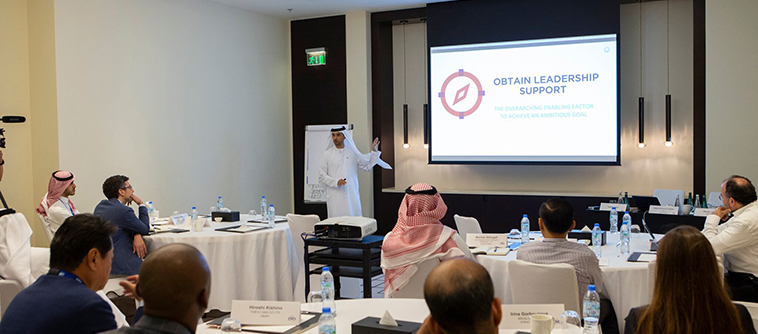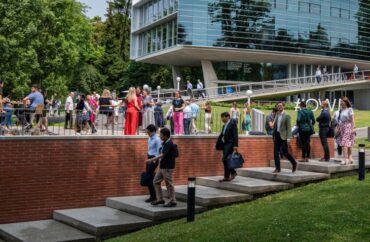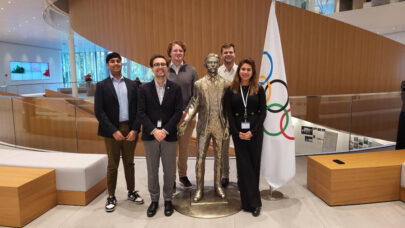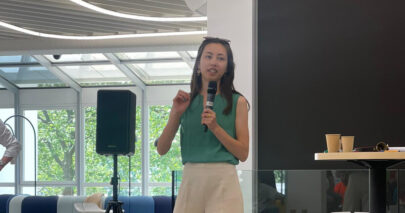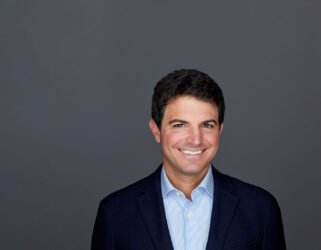Few cities in the world have undergone a transformation as dramatic and wide-ranging as Dubai in the last 30 years.
In that short space of time, the Emirati city has grown from a relatively small urban area (it’s population in 1990 was less than 500,000) to the major global business hub of the Middle East.
Central to the city’s mind-boggling growth is its development and implementation of digital technologies, an industry at which it now finds itself at the cutting edge.
Dubai’s digital journey began in earnest almost 20 years ago, when it launched its e-government system in 2000. In more recent years, the city has invested heavily in the development and deployment of Artificial Intelligence (AI) technologies, a topic Minister of State H.E. Omar Sultan Al Olama discussed at length during a keynote speech at Orchestrating Winning Performance yesterday.
Now, the city has ambitions to go even further, said Wesam Lootah, CEO of Smart Dubai Government during a session at OWP.
The great enabler
His Highness Sheikh Mohammad Bin Rashid Al Maktoum, Vice-President and Prime Minister of the UAE and ruler of Dubai, has described technology as a means of improving the lives of all citizens of the city.
The Smart Dubai initiative aims to fulfil Sheikh Mohammad’s ambition to make Dubai the “happiest city on Earth.”
“This takes us back to the idea that we are here to serve our residents,” said Lootah. “Governments are there to enable and to allow everyone to prosper.”
And how does technology fit into this ideal?
“Technology is just a means to an end,” he says. “It is tempting to collect technologies without knowing what to do with them. You need a purpose – and happiness is ours.”
“First define the experience you want to change, then find the technology you need to do it.”
A digital government in a box
Lootah described Smart Dubai’s ambition as being able to provide a “digital government in a box” – one system that connects citizens to all the services they need to survive and thrive in their personal and professional lives, from housing and healthcare to transportation and educational services.
“For example, if someone living in Dubai wants to start a business, they can do this using one platform, rather than jump around government departments,” Lootah said. “They can also pay for fuel, renew their car registration, move house, pay bills and fines.
“Can one system serve an entire city, and can this system be exported to other parts of the world,” is the question that Smart Dubai is aiming to answer, Lootah said.
“We tackle the citizen experience when deling with the government,” Lootah said. “We ask, how can we create our policies around the citizen?
Efficiency
“Tech can be a great enabler for efficiency,” Lootah explained.
In a demonstration of this, the Dubai government has announced that it will issue its last paper transaction in 2021. “You have to have clear goals like this,” Lootah explained. “This will save the government AED900m, save 1 billion pieces of paper, 125 million work hours and save 130,000 trees.”
Dubai has also launched a payment system that is linked to blockchain, and which collected AED67 billion between 2015 and October this year, while almost 50 million transactions were made in the same period.
The backbone of digital services is, of course, data. Smart Dubai has made 500 sets of data available to the private sector via a platform called Dubai Pulse.
Lessons learned
With the Smart Dubai process well underway, what lessons and advice would Lootah offer others cities looking to enhance their digital capabilities?
“Be ambitious and dream big,” he said. “If there is no risk of failure, then your goal is not ambitious enough. It has to be seemingly impossible, because this motivates people.”
Next, governments should “get people excited about their vision”, by getting them on board and engaging with them as early as possible. “Any change will create discomfort,” he said, “we are not wired for change, so bring them on board and get them excited about it. And create a sense of urgency by communicating why change is necessary straight away. If you don’t, people will say they will do it tomorrow.
“You should also obtain leadership support, which is the overarching enabling factor to achieve an ambitious goal. Without it, it will be hard to change anything.”
It’s also important to “think win-win,” said Lootah. “Include partners in your success story. If you create this story just for you, then you are not going to succeed. You should not outshine your partners, you need to win together.”
